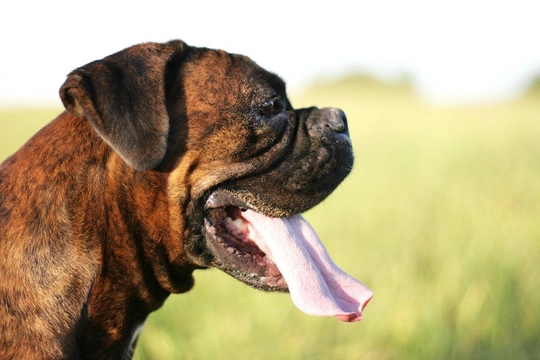
Seven fascinating facts about your dog’s saliva
It is always interesting to learn a new fact about your dog, their behaviour, temperament or physical makeup, and the more obscure such facts are the more fascinating this can be! One element of dogs that few of us pay any mind to however, is their saliva-but your dog’s spit or slobber is actually pretty interesting (as well as potentially messy) when you get down to it!
If you have never really paid much attention to your dog’s saliva and slobber, this is totally understandable-but read on to find out seven fascinating facts about dog saliva to impress your friends!
The shape of your dog’s face dictates how much they slobber
All dogs slobber to some extent, but the conformation of your dog’s face can dictate how much! Dogs with brachycephalic faces - those that are flat-looking with prominent eyes and a short nose-will generally produce more slobber than dogs with a long muzzle, because the shape of their face and lips are so different.
Because dogs with brachycephalic faces sometimes have unusual dentition too, and their lips do not close fully over their teeth, this can lead to more slobbering than the norm!
Your dog’s spit has a different pH level to yours
Human saliva has a pH of around 7 or a little bit lower, which is neutral. Dog saliva, on the other hand, has a pH of 7.5 to 8, which is more alkaline, and this is actually better for their dental health!
Your dog’s saliva production helps to keep their teeth clean, and to wash food particles and bacteria that would otherwise cling to the teeth down into the stomach. The longer food or bacteria adhere to the teeth for, the more damage they can do, and so when your dog licks their teeth and generally, produces and swallows saliva, this helps to move bacteria and debris away from the teeth.
Excessive slobbering can be a sign of ill health
The amount that any dog slobbers will be dictated by a huge range of different factors, not least the shape and makeup of their face, as mentioned above. Some dogs will slobber almost constantly, drool all the time and wake up in a puddle of spit after nodding off, while others will produce little to no excess saliva.
However, if your dog is suddenly slobbering more than normal, or appears to be producing excess saliva, this can be an indicator of ill health. Dogs will tend to salivate more heavily immediately before vomiting, and additionally, some more serious health issues such as poisoning or toxic ingestion can produce excess salivation too, so it is important to bear this in mind.
There are no digestive enzymes in saliva
Saliva is an important part of the digestive process, as your dog’s spit of course helps to soften their food and ease its passage down into the stomach.
People have digestive enzymes present in their saliva, which means that for people, the digestive process begins while the food is being chewed-but when it comes to dogs, their saliva does not contain the same enzymes, and simply fulfils the role of washing food down into the stomach, where the digestive process begins in earnest.
Saliva can be an allergenic trigger
Life can be pretty miserable for people who are allergic to dogs, and non-shedding dogs are often lauded as a good pick for people with allergies. This leads many people to assume that it is the hair of the dog that is the allergenic trigger, but in fact this is not the case! It is proteins in the body that trigger an allergic reaction in people prone to them, and these are present in shed skin cells, and saliva as well.
This means that when your dog licks their coat, they transfer saliva onto their fur, and this can then trigger an allergic reaction in people prone to them-due to the saliva, not the hair itself!
Your dog’s saliva has antibacterial qualities
The saliva of dogs can fairly be described as reasonably dirty, as it will contain bits of their food, bacteria and of course, other nastiness that they have eaten and licked. However, it also has antibacterial properties, which are specific to dogs-this is why in the wild, dogs will lick their wounds, which can sometimes help to promote healing.
However, the saliva of every dog has different properties, and so one dog licking another may pass on bad bacteria, but not necessarily beneficial bacteria!
…But this effect does not mean that dog saliva is good for people!
Dog saliva is dirty, and not good for people. Dogs eat and lick all sorts of nasty things, including their own genitals, and this is fine for your dog themselves, but not for you!
You should always wash your hands after your dog has licked you, and never let your dog lick your face, as this can pass on all manner of nasties that your own body may not be well set up to deal with.



